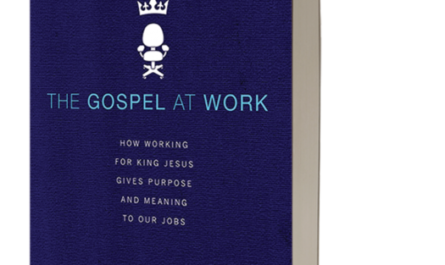
“Knowing about God is not enough; you’ve got to know God, and who He is, His character, His heart and His will and the only way to accomplish this is by studying the Bible.” Henry Jackson
In his small book, Stop Reading, Start Studying, Henry Jackson seeks to help Christians know God intimately through inductive Bible studies. He says inductive Bible study is an approach to God’s word that progresses from a general synopsis to specifics, helping readers get the central idea in the portion they are studying.
Jackson outlines the importance of this approach of bible study as one that allows readers to observe, interpret and apply scriptures truths without relying on commentaries, sermons and other people’s ideas. He believes every Christian is able to read and understand the scriptures with the help of the Holy Spirit.
Inductive bible study helps the reader see and listen to what the text is saying in its original context, interpret the text meaning and then apply the truths of that text life in one’s life.
Throughout the book, the reader can’t help but notice the emphasis that inductive bible study helps one become a believer who is transformed and more like Christ Jesus. Jackson has quoted from several authors who believe that scripture alone is able to transform us into Christ’s image if we live in obedience to what it says.
The book has seven chapters; the first three emphasise on the objectives of inductive studies, answering the three questions: “What does the passage say?” “What does it mean?” “So what?”
In the remaining chapters the author outlines helpful tools/ techniques one can use to grow.
In chapter 1, the author states why one should study the bible inductively and why it is biblical and beneficial for any Christian to be a student of the Bible. In the next three chapters, he outlines the three steps that are foundational to inductive bible study as follows: Observation, interpretation and application.
He defines observation as the attempt to see clearly what a text says. It is ‘the act of taking notice of, fixing the mind upon and beholding with attention with the goal of discovering what the text says’. It involves reading the text, looking keenly at the punctuation, highlights, cultural setting, background and trying to get the genre as you ask yourself – what seems to be the main thing?
In interpretation, the author introduces different principles a reader can use when trying to understand the original intent of the author. The author encourages readers to try interpret a passage in the literal sense unless the text gives clear reason to believe it is poetic or metaphorical.
The third step of inductive bible study is application — how does the passage speak to you? What is the command to obey, sin to confess among others? It is choosing to believe what you have discovered as the truth.
The author further gives helpful tools in chapter 5, 6 and 7 that help one to develop the discipline of studying the Bible regularly, practically and fruitfully.
I found this book helpful especially in the practical tools, the aspect of memorization and being organized for the study. I believe there are many ways of growing as a Christian but reading God’s word is not an optional extra. Thus I would recommend this book to every Christian who desires to grow in their scripture reading and understanding of God’s word without wholly relying on commentaries and sermons.


